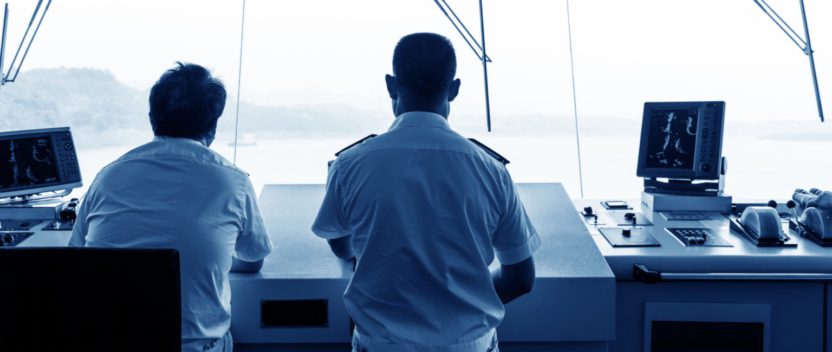Brexit and shipping, the good, the bad and must try harder
The referendum on whether to leave or remain within the European Union has preoccupied British social and political discourse for many months but produced little by way of enlightenment. And as summer draws on and the vote nears, it has become clear that for better or worse, the impact of Brexit on UK shipping has been a low priority item.
In some ways this is not surprising, given the ‘sea blindness’ that plagues shipping’s public recognition. In other ways, the fact that shipping is so vital to the country’s trade and economic health makes it a surprising omission.
The exclusion is not for want of trying. Though the UK Chamber of Shipping, in common with almost every other trade association, has not expressed a stance, it did draw up a report examining the pros and cons which was sent to the UK Government, without eliciting much response.
As Director of Policy David Balston remarked to a seminar held by the UK Maritime Foundation, while all Britons have their own perspectives “the one thing we can agree on is that both camps have been very light on facts”.
In considering the threats and opportunities as he saw them, Balston was scrupulous to not break his own rule though he did attempt to bust a few myths.
Specifically, he said, despite the belief that the UK suffers from too much EU regulation, the UK government has never been shy of gold-plating IMO regulations just as the EU has done, going what he called ‘the extra, unwanted mile’, making it harder for UK companies to be competitive.
On the pro-remain side, Balston said there were several reasons why a leave vote would hurt ‘Maritime UK’. Shipowners want barriers to trade removed rather than erected and the Chamber’s research found that a vote for Brexit would see them flag ships out of the UK ‘the next day’. Where owners lead, the maritime hub would follow, together with substantial revenues.
From a trade perspective, he wondered why the UK would consider leaving the world’s largest single economic zone, especially considering the benefits of customs union and simplified cross-border trading.
The mutual recognition of qualifications among seafarers is an obvious advantage to the UK and the EU security strategy, particularly anti-piracy operations in the Red Sea, Indian Ocean and Gulf of Guinea has been a notable success, he added.
On the pro-leave side, he said certain EU treaty articles, including those prohibiting discrimination which sounded good in theory in practice meant a large number of EU companies can’t afford to pay EU nationals to crew their ships and must flag abroad, reducing the numbers of Europeans at sea.
The gold-plating of IMO conventions by the EU is best illustrated by its interference in the Manila amendments to the STCW Convention which brought in “unwarranted regulation with no pragmatism, exceptions or flexibility”.
As previously covered on Great Circle, the EU’s apparent obsession with the Port Services Directive is currently in its third iteration, despite the lack of appetite among member states and the already strong nature of competition between national ports.
The EU’s passenger rights regulations under which compensation can be claimed for delays and cancellations is a similarly unnecessary piece of regulation in a highly competitive market with thin margins, he said.
Last but not least he said the EU’s programme of unilateral, regional environmental regulations was ‘a huge issue for shipping’. And he warned that as the EU gains more competence on shipping issues, the pressure would increasingly be felt by EU countries at IMO that “as a member state you can’t speak unless you are toeing the EU line”.
Perhaps conveying a belief that the UK was better inside the tent than outside it, he suggested there was much the EU could do better for Britain.
There is much uncertainty around the future of the UK tonnage tax in the context of EU state aid rules and since the tax had been critical in turning around the fortunes of the UK merchant navy, a clear signal on their review or revision was needed.
There should, he said be a wider take-up of pilot exemption certificates and these should be more freely granted, while cabotage rights which allow ships and seafarers to work freely across Europe should be applied much more uniformly by neighbouring states.
Clarity is also needed on the EU Water Framework Directive. After the introduction of the EU Sulphur Directive – its version of IMO’s revision of Marpol Annex VI – the case was strongly made that fitting a scrubber would be a cost effective and efficient means of compliance with the requirement to reduce sulphur emissions.
“Unfortunately too few of those ministries of transport advocating scrubbers were aware of the WFD, which prohibits waste water discharges of any kind with the 12 mile limit. As a result it completely removes the economic case for sulphur scrubbers.”
In general, he concluded, the critical need was for the EU to improve its understanding of shipping, especially in the application of IMO regulations and the development of its own – though he said could apply equally to the UK government too.
The lack of UK government support for shipping looks set to continue whether or not Britain votes to leave the EU. The agreement secured by Prime Minister David Cameron from EU countries, on which he has placed so much weight will have limited impact on shipping.
Only the intention to increase competitiveness – for which the EU already has its own strategy – would have an impact in the sense that any reduction of regulation would lighten the burden of EU rules, said Balston. But given the fact that the next plank of EU regulation, the MRV programme recording carbon emissions from shipping begins from January 1, 2018, it seems this is somewhat wishful thinking should Britain vote to remain.


